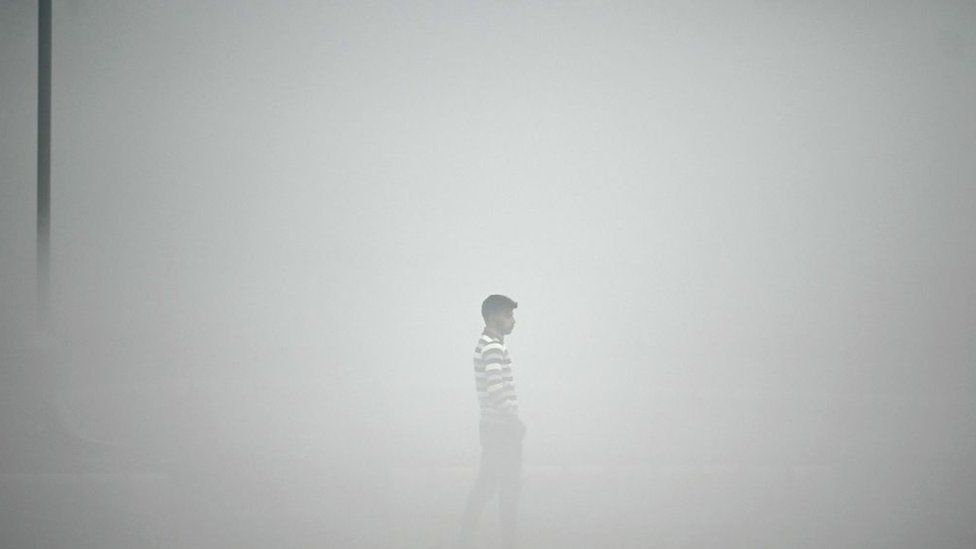-

-
-
Loading

Loading

The air quality in Delhi, India's capital, deteriorated after the Diwali festival, with residents waking up to smoky skies. Despite a ban on fireworks due to high pollution levels, people in the city continued to burst crackers late into the night. Delhi has been grappling with toxic air for weeks, prompting the government to declare an early winter break for schools in an effort to safeguard children. The city faces year-round pollution due to factors like vehicular emissions and dust, but the problem worsens during winter when crop stubble burning by farmers in neighboring states and low wind speeds trap pollutants near the ground, making it difficult to breathe. On Monday morning, the Air Quality Index (AQI), which measures the level of fine particulate matter in the air, crossed 200 at 37 monitoring stations in Delhi, with some places recording readings above 350. Levels between 101 and 200 are considered moderate, while those between 201 and 300 are categorized as poor. A reading over 300 is deemed "very poor," and anything higher than 500 is considered "severe." Extended exposure to high pollution levels can cause discomfort and respiratory issues. The Supreme Court of India has banned the use of fireworks during Diwali, only allowing "green crackers" with reduced emissions. The Delhi government has also enforced a ban on firecrackers during Diwali in recent years, but compliance with the rule is lacking. The ban has also taken on political undertones, with some arguing that it targets Hindu festivals. Delhi's environment minister, Gopal Rai, accused leaders from the Hindu nationalist Bharatiya Janata Party (BJP) of "inciting" people to light firecrackers, although there has been no official response from the BJP leaders. The poor air quality on Monday followed a temporary reduction in pollution levels over the weekend due to rain on Friday.